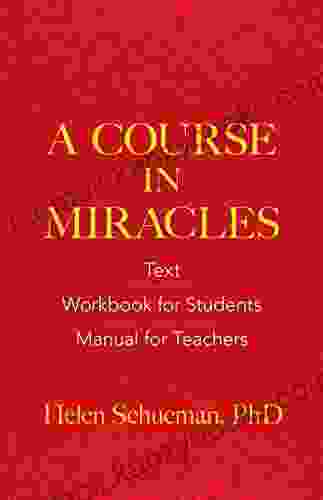Control Guide For Hiccups: Stop Hiccups Immediately

Hiccups, also known as singultus, are involuntary spasms of the diaphragm and intercostal muscles, causing a sudden involuntary contraction of the vocal cords. They can be extremely annoying and disruptive, and can sometimes be a symptom of an underlying medical condition. While most hiccups are harmless and will resolve on their own within a few minutes or hours, there are some cases where they can persist for days or even weeks, becoming a significant source of discomfort and distress.
5 out of 5
| Language | : | English |
| File size | : | 309 KB |
| Text-to-Speech | : | Enabled |
| Screen Reader | : | Supported |
| Enhanced typesetting | : | Enabled |
| Print length | : | 35 pages |
| Lending | : | Enabled |
This comprehensive guide will provide you with a thorough understanding of hiccups, including their causes, triggers, and potential complications. We will also explore a wide range of effective techniques and strategies to help you control and stop hiccups immediately, allowing you to regain a sense of comfort and well-being.
Causes and Triggers
The exact cause of hiccups is not fully understood, but it is believed to be related to a sudden involuntary contraction of the diaphragm. This contraction causes a rapid intake of air, which is then abruptly stopped by the closure of the vocal cords, resulting in the characteristic "hic" sound.
Hiccups can be triggered by a variety of factors, including:
- Eating too quickly or eating large meals
- Drinking carbonated beverages
- Smoking
- Chewing gum
- Sudden changes in temperature
- Stress or anxiety
- Certain medical conditions, such as gastroesophageal reflux disease (GERD),peptic ulcer disease, and certain neurological disFree Downloads
Persistent Hiccups
While most hiccups are transient and will resolve on their own within a short period of time, there are some cases where they can become persistent, lasting for days or even weeks. This is known as persistent hiccups, and can be a sign of an underlying medical condition that requires attention.
Some of the potential causes of persistent hiccups include:
- Gastroesophageal reflux disease (GERD)
- Peptic ulcer disease
- Esophageal cancer
- Phrenic nerve injury
- Certain medications, such as steroids and chemotherapy drugs
- Central nervous system disFree Downloads, such as stroke and multiple sclerosis
If you experience persistent hiccups, it is important to consult with a healthcare professional to rule out any underlying medical conditions and receive appropriate treatment.
Complications
In most cases, hiccups are harmless and will not cause any serious complications. However, persistent hiccups can lead to a number of potential complications, including:
- Sleep deprivation
- Dehydration
- Weight loss
- Nutritional deficiencies
- Asphyxiation (in rare cases)
Effective Techniques and Strategies
There are a wide range of effective techniques and strategies that can help you control and stop hiccups immediately. Some of the most common and effective methods include:
- Hold your breath: Take a deep breath and hold it for 10-15 seconds. Repeat this process several times until the hiccups subside.
- Drink a glass of water upside down: Take a glass of water and tilt your head back. Drink the water upside down, allowing it to flow down the back of your throat.
- Bite into a lemon: Cut a lemon in half and bite into it. The sour taste can help to stimulate the vagus nerve, which can help to stop hiccups.
- Gargle with salt water: Mix 1 teaspoon of salt in a glass of warm water and gargle it for 30 seconds. Repeat this process several times until the hiccups stop.
- Pull on your tongue: Gently pull on your tongue for 30 seconds. This can help to stimulate the vagus nerve and stop hiccups.
- Apply pressure to your diaphragm: Lie down on your back and place a heavy object on your diaphragm. This can help to stop the involuntary contractions that cause hiccups.
- Take a hot bath: The warm water can help to relax the muscles of your diaphragm and stop hiccups.
- Medications: In some cases, medications may be prescribed to stop persistent hiccups. These medications typically work by blocking the nerves that control the diaphragm.
Hiccups are a common and generally harmless condition that can be effectively controlled and stopped using a variety of techniques and strategies. By understanding the causes and triggers of hiccups, and by implementing effective control measures, you can regain a sense of comfort and well-being. If you experience persistent hiccups that do not respond to home remedies, it is important to consult with a healthcare professional to rule out any underlying medical conditions and receive appropriate treatment.
5 out of 5
| Language | : | English |
| File size | : | 309 KB |
| Text-to-Speech | : | Enabled |
| Screen Reader | : | Supported |
| Enhanced typesetting | : | Enabled |
| Print length | : | 35 pages |
| Lending | : | Enabled |
Do you want to contribute by writing guest posts on this blog?
Please contact us and send us a resume of previous articles that you have written.
 Book
Book Novel
Novel Page
Page Chapter
Chapter Text
Text Story
Story Genre
Genre Reader
Reader Library
Library Paperback
Paperback E-book
E-book Magazine
Magazine Newspaper
Newspaper Paragraph
Paragraph Sentence
Sentence Bookmark
Bookmark Shelf
Shelf Glossary
Glossary Bibliography
Bibliography Foreword
Foreword Preface
Preface Synopsis
Synopsis Annotation
Annotation Footnote
Footnote Manuscript
Manuscript Scroll
Scroll Codex
Codex Tome
Tome Bestseller
Bestseller Classics
Classics Library card
Library card Narrative
Narrative Biography
Biography Autobiography
Autobiography Memoir
Memoir Reference
Reference Encyclopedia
Encyclopedia Marcia Mcfee
Marcia Mcfee Andrea Gonzalez
Andrea Gonzalez Moniola Cann
Moniola Cann Julie Massoni
Julie Massoni Kate Barrett
Kate Barrett Andrea Marsh
Andrea Marsh American Psychological Association
American Psychological Association William Horwood
William Horwood Becca Riley
Becca Riley Heather Lawless
Heather Lawless Amy Young
Amy Young Amy Rafferty
Amy Rafferty Amy Nicholas
Amy Nicholas Ana Maria Lajusticia Bergasa
Ana Maria Lajusticia Bergasa Amy M O Quinn
Amy M O Quinn Marissa Hermer
Marissa Hermer Joyce Ransome
Joyce Ransome Anders Treiberg
Anders Treiberg Judith E Harper
Judith E Harper J T Benefiel
J T Benefiel
Light bulbAdvertise smarter! Our strategic ad space ensures maximum exposure. Reserve your spot today!

 John Dos PassosDiscover the Culinary Delights of Cast Iron Cooking: An Enchanting Journey...
John Dos PassosDiscover the Culinary Delights of Cast Iron Cooking: An Enchanting Journey...
 Easton PowellText Workbook For Students Manual For Teachers: A Comprehensive Guide for...
Easton PowellText Workbook For Students Manual For Teachers: A Comprehensive Guide for... Alan TurnerFollow ·5.9k
Alan TurnerFollow ·5.9k Brent FosterFollow ·12k
Brent FosterFollow ·12k Griffin MitchellFollow ·10.6k
Griffin MitchellFollow ·10.6k Logan CoxFollow ·15.5k
Logan CoxFollow ·15.5k Steven HayesFollow ·8.1k
Steven HayesFollow ·8.1k Hugh ReedFollow ·10k
Hugh ReedFollow ·10k Colby CoxFollow ·7.4k
Colby CoxFollow ·7.4k Zachary CoxFollow ·19.2k
Zachary CoxFollow ·19.2k

 Miguel Nelson
Miguel NelsonFour Cookbooks In One: Recipes To Fight Cancer, Heart...
Looking for a healthy way...

 Marcus Bell
Marcus BellHearts and Souls: Exploring the Lives and Legacies of...
The Special Olympics movement has been a...

 Tony Carter
Tony CarterDiagnosed With Breast Cancer: Navigating Life After the...
A breast cancer diagnosis can be a...

 Joe Simmons
Joe SimmonsLiddypool: The Stories and Interviews – A Literary...
In the realm of...

 Jett Powell
Jett PowellBreakfast for Boneheads: 66 Breakfast Recipes for Lazy...
Are you tired of eating the...
5 out of 5
| Language | : | English |
| File size | : | 309 KB |
| Text-to-Speech | : | Enabled |
| Screen Reader | : | Supported |
| Enhanced typesetting | : | Enabled |
| Print length | : | 35 pages |
| Lending | : | Enabled |










